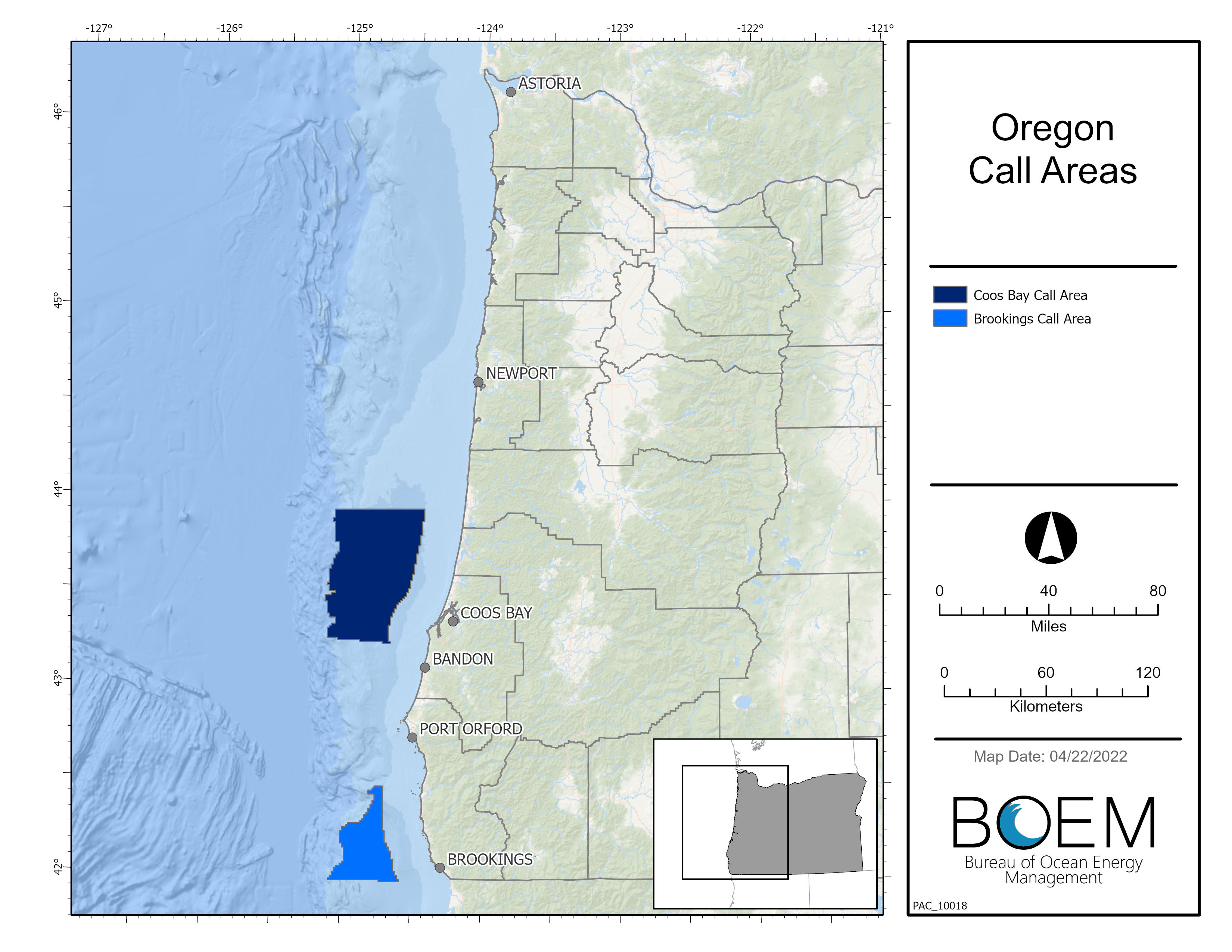Proposed offshore wind energy areas off the Oregon coast must be set aside and the planning process started anew, using more planning tools “to minimize siting impacts to fisheries and ecosystem resources,” according to the Pacific Fishery Management Council.
At its meeting in Seattle, the council voted Thursday to recommend the federal Bureau of Ocean Energy Management do a complete reset on outlining “call areas” off the Oregon coast, an early step in planning for future wind power leases to gauge potential developers’ interest.
A motion approved by the council calls for rescinding the Brookings and Coos Bay call areas previously outlined by BOEM. The council further “requests that BOEM restart the process to identify call areas and consider all water off Oregon from 12 miles and beyond, including waters that are greater than 1,300 meters in water depth, and using marine spatial planning tools to minimize siting impacts to fisheries and ecosystem resources.
“Exclude from further consideration all offshore banks and seamounts and require an adequate buffer zone surrounding them as determined by collaborative work” among the council and state and federal agencies.
BOEM’s call areas prompted stiff resistance from Oregon fishing groups as soon as they emerged in February 2022. “This is what results from government agency lip service versus authentic engagement,” Heather Mann, director of the Midwater Trawlers Cooperative, said then. “BOEM has essentially chosen prime fishing areas for turbines threatening not just Oregon harvesting and processing jobs, but food security as well.”
After the Thursday vote fishing advocates praised the council’s stand.
“The Council's action sends a strong signal to BOEM that fisheries leaders do not want to risk losing our productive fisheries, the scientific surveys on which our fisheries management depends, or the health of our ocean ecosystems due to offshore wind,” Susan Chambers, deputy director of the West Coast Seafood Processors Association, and co-chair of the council’s Marine Planning Committee. “The California Current is one of the most productive ecosystems in the world. We need to get this right.”
The council recommended that BOEM start the siting process over, using a spatial mapping tool focused on identifying deconflicted areas suitable for wind energy development.
“Instead of using this approach to consider appropriate areas along the entirety of the Oregon coast, BOEM has been using the mapping tool only to analyze the call areas identified last year,” according to a joint statement by the Midwater Trawlers Cooperative and West Coast Seafood Processors.
“Members of the fishing industry, environmental groups, tribes, and several of the Council’s advisory bodies provided testimony to the Council supporting a more widespread use of the mapping tool. The motion also included sending the same letter to Oregon’s new Governor, Tina Kotek.
“Seven Council advisory bodies provided detailed statements voicing concerns about the current process, with several bodies calling to rescind the current Oregon call areas. These advisory body statements were buoyed by oral public comment from 10 organizations and businesses, including the environmental organization, Oceana, as well as individual fishing businesses and fishing trade associations.”
The motion passed unanimously, with four abstentions votes by the state representatives for Oregon, Washington, and California and the National Marine Fisheries Service.
Council Tribal representative Joe Oatman said “Tribal concerns are not being given the due consideration that they deserve. Many potential impacts on the California current ecosystem and the aquatic resources on which they depend have not been adequately identified or addressed by BOEM.”
Tribal interests “are very concerned that the cumulative impact of wave energy areas in California, Oregon and Washington and their individual environmental assessments will be inadequate to protect treaty fishing rights,” said Oatman.
In making the motion calling for rescinding the current call areas, council member Christa Svensson said restarting the process would “signal to key stakeholders that BOEM is sincere in their goal to identify areas of development that have the least conflict.”




